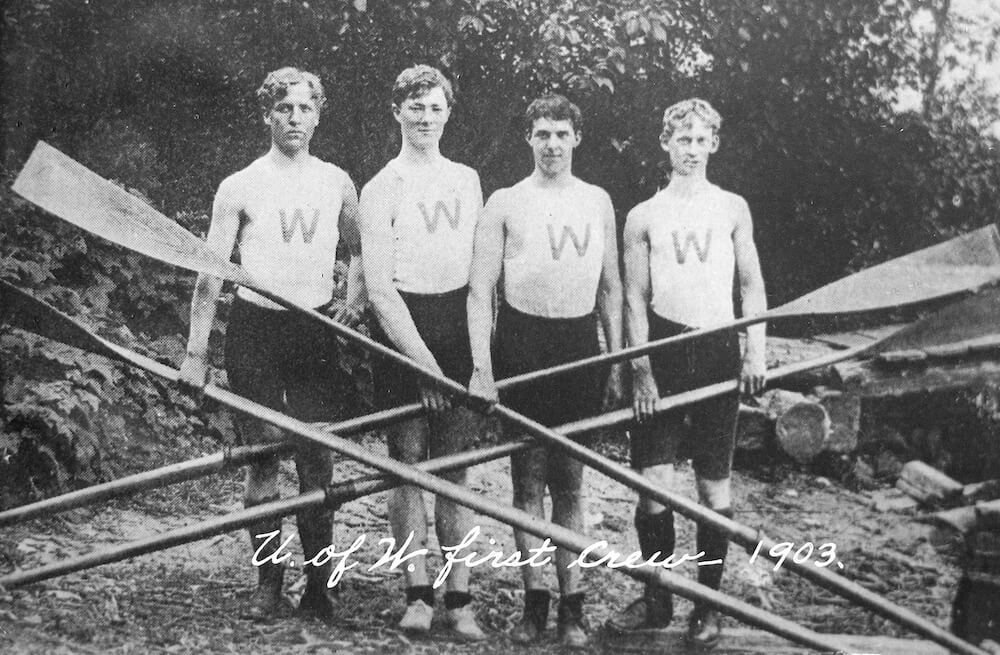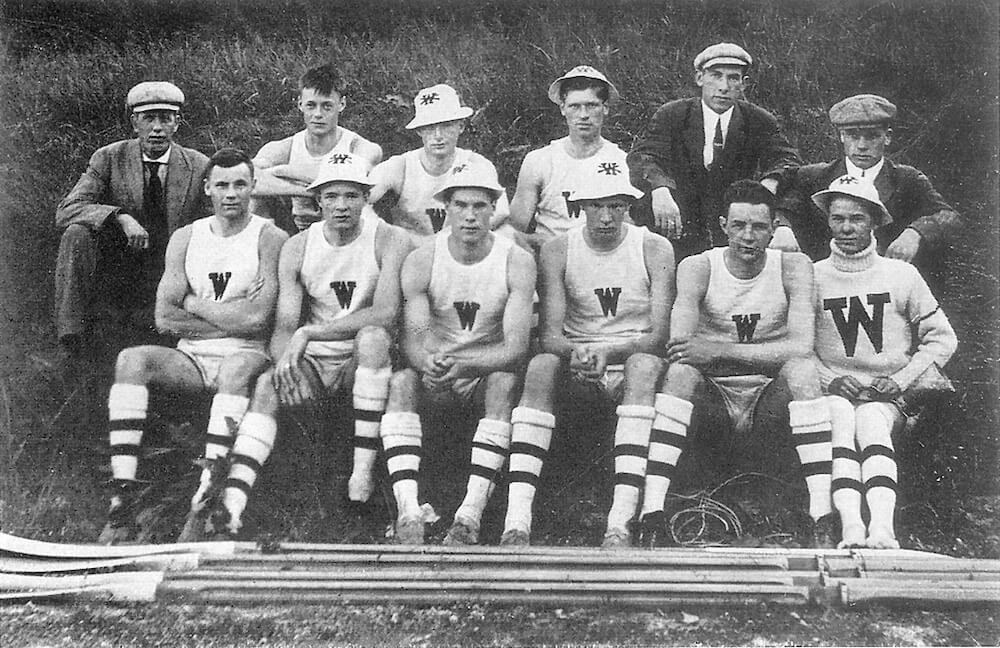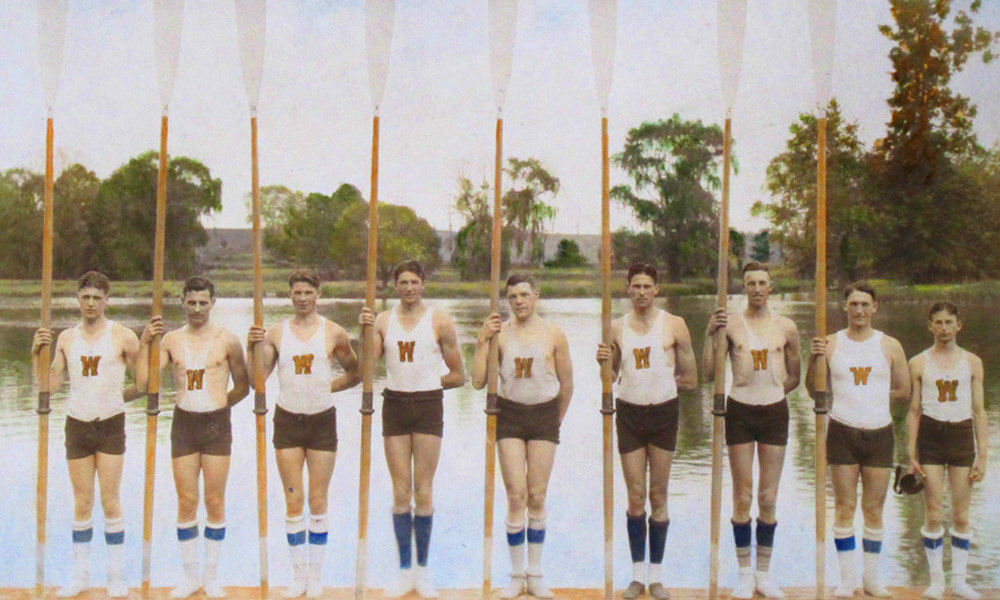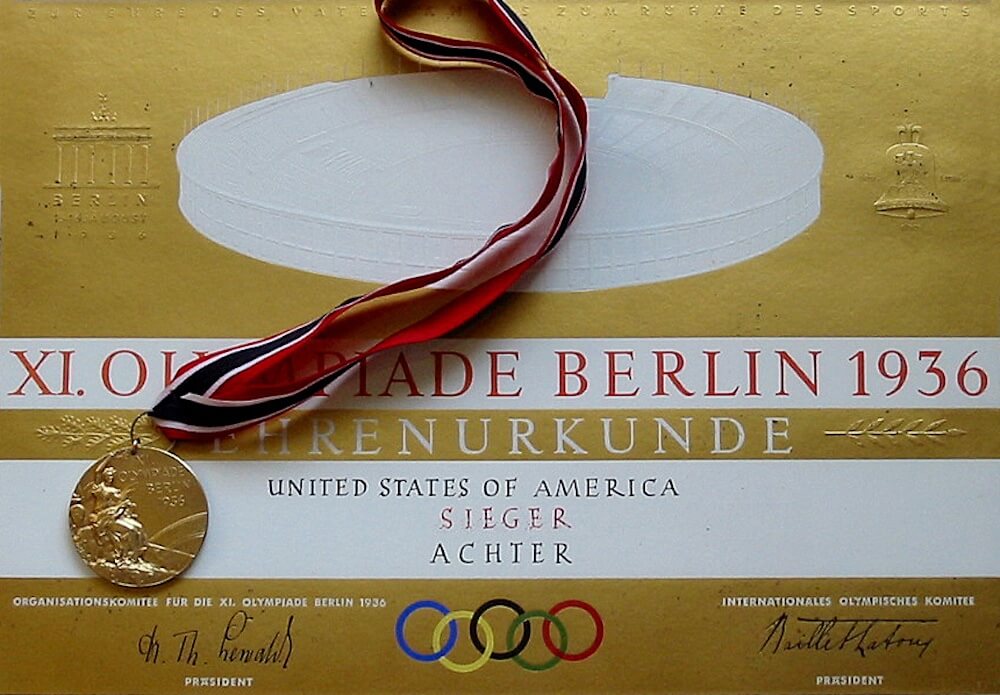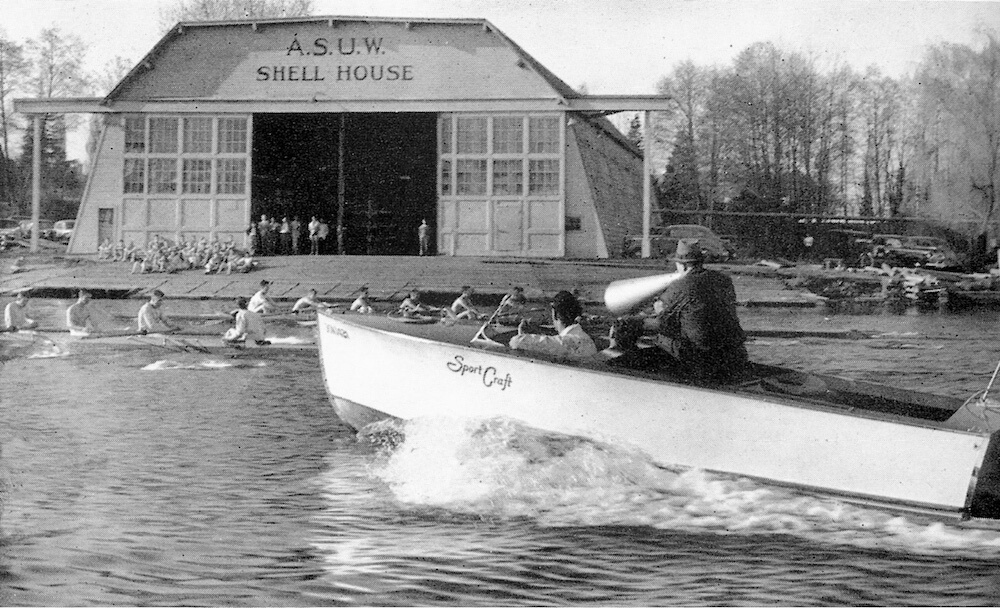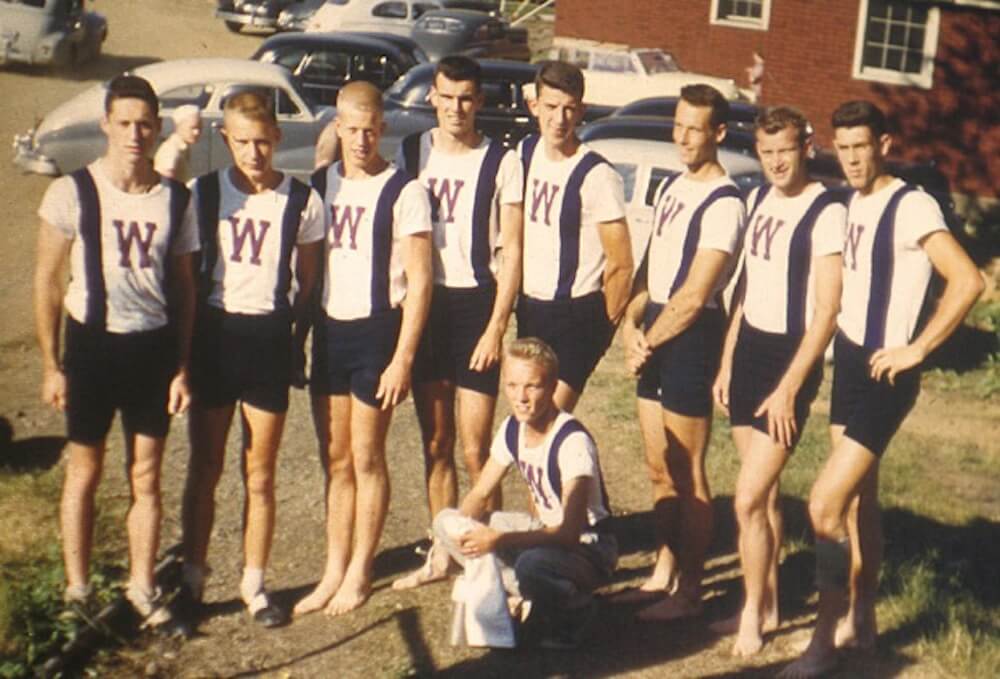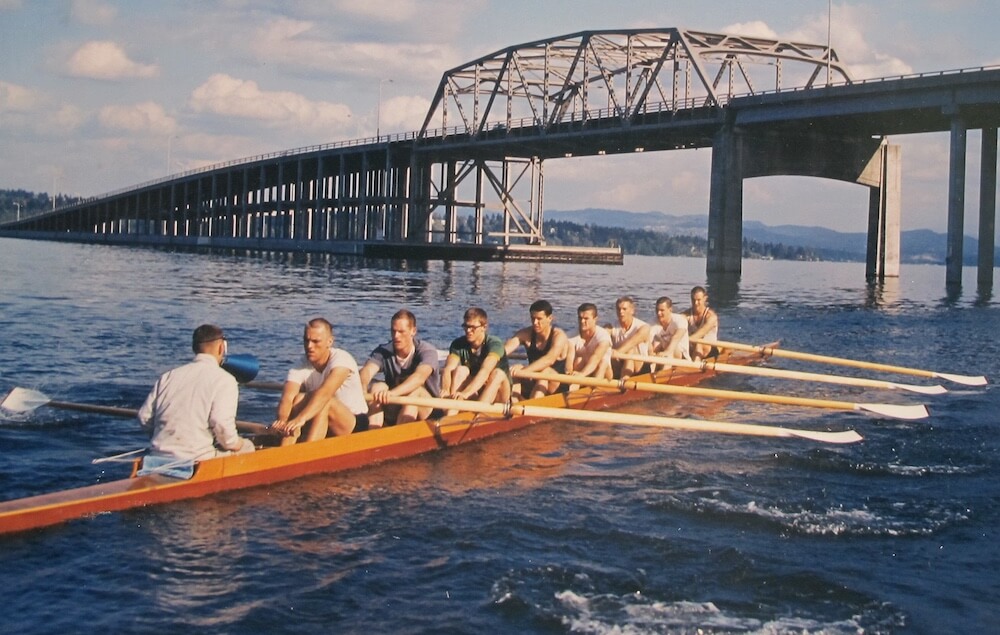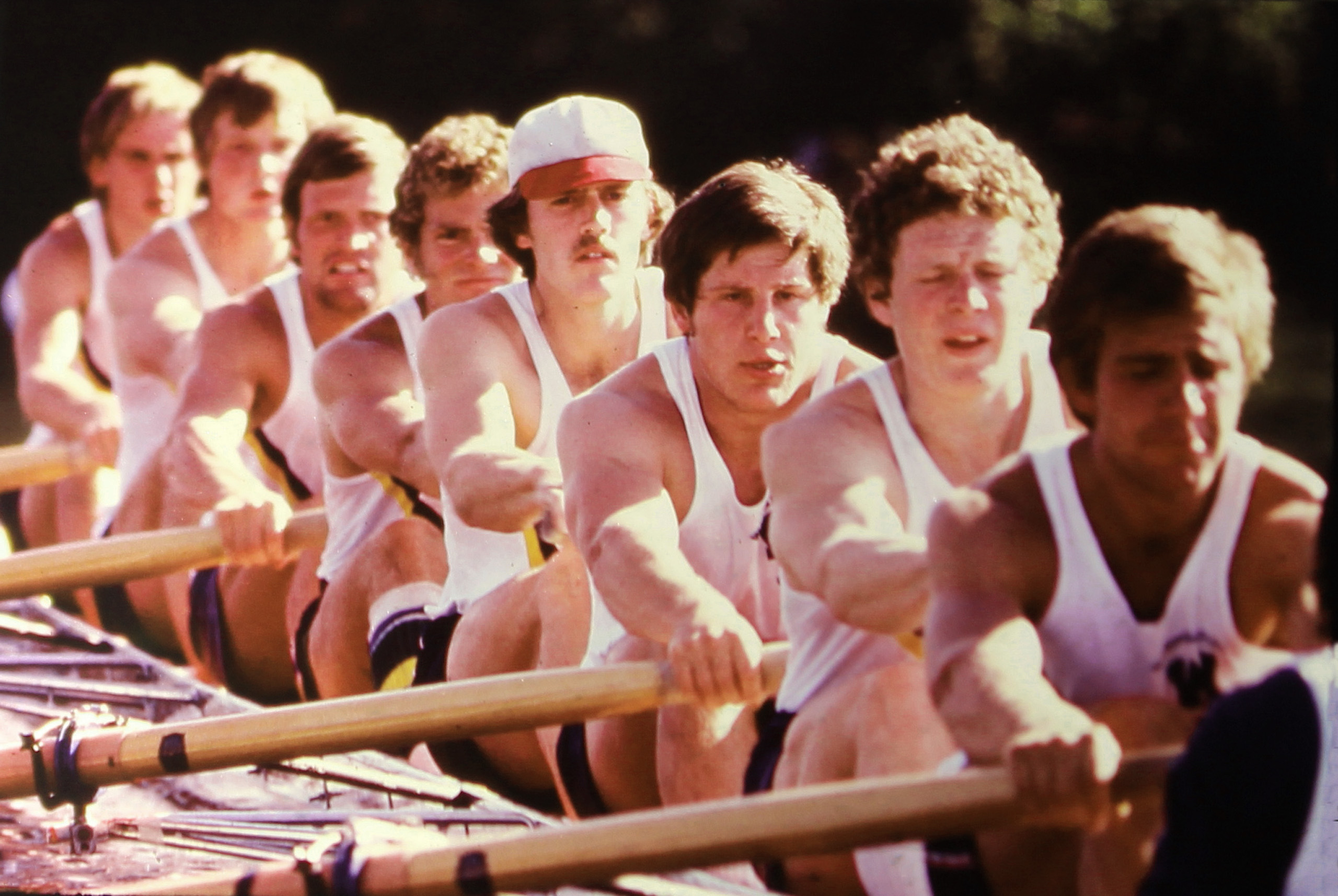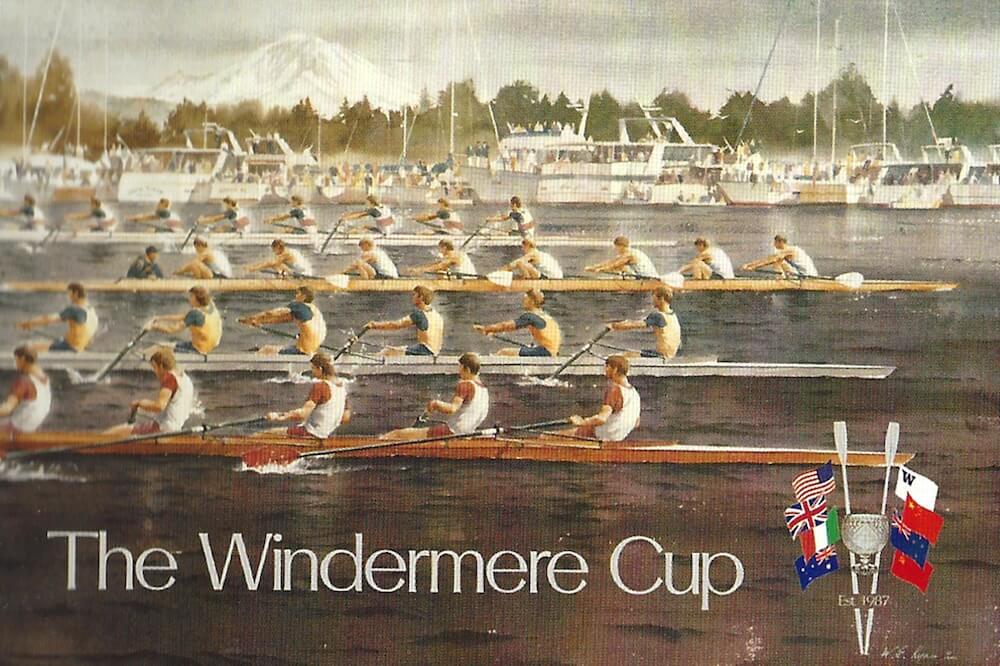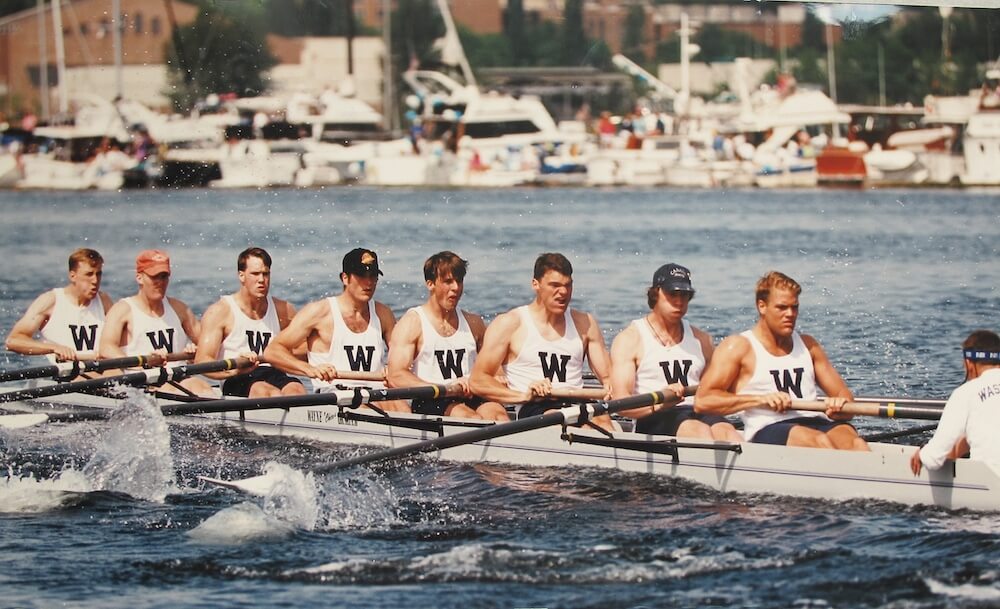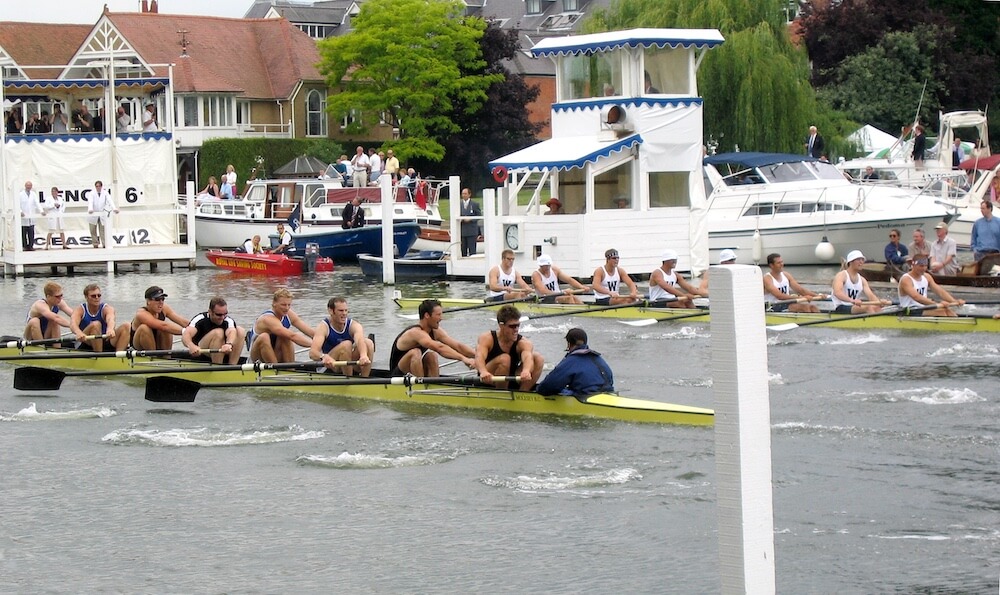Welcome to the Washington Men's
Rowing History
There was interest in organized men’s rowing at Washington even before the University officially pulled up stakes in downtown Seattle and moved to the current Lake Washington site in September 1895. The biggest hurdle was finding shells – or even a boatbuilder to build shells – in a booming city supplying prospectors for the 1897-1898 Yukon Gold Rush.
By the summer of 1899 there were a number of single scullers (and a four-oared shell rowed by the Seattle Athletic Club) periodically out on the lake. But it was E.F. Blaine – a successful attorney and land developer in the city – that was the catalyst for rowing at Washington. He offered to raise the funds necessary for two 4-oared barges (what we would call wherries today), and for a student-built boathouse to house the new boats on the west shore of Union Bay. That offer was accepted in late 1899 by the students, and by 1900, the two new shells were complete, as was the boathouse (using logs cut and floated north from the Broadmoor neighborhood). The total expense, shared by the Blaine, Henry, Pigott and other prominent families in the city, was $650, with all of the labor for the boathouse provided by the students. More on this effort can be found here – HistoryLink: Rowing begins at University of Washington on December 15, 1899
In the spring of 1901, the first Class Day race was held, with the freshmen defeating the sophomores in the new 4-oared barges. By 1903, the University and students – and many of the same city leaders that created the initial opportunity at Washington – joined together to organize the first intercollegiate race between Washington and California. It is that first varsity race that we begin our history, a tradition that spans over twelve decades now, and continues as one of the strongest community/amateur athletics partnerships in the nation.

